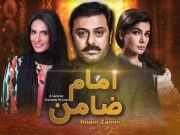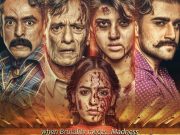Saptak Album Download Link

From Sampooran (a set of five notes) to Saptak (a set of seven notes), we preview Mekaal Hasan Band’s latest album.
By Madeeha Syed
I’ll confess: the Mekaal Hasan Band (MHB) for me (and for quite a few people) has been an acquired taste; mostly brought upon by attending some of its live performances. The first album, Sampooran, featured artistes that are the best in their field, but has often been described as too ‘hard to digest’. It definitely wasn’t listener-friendly, and the worst critique that one can give it is that the sheer perfection sought in the technique employed in the musical and vocal arrangements had robbed it of its soul. Getting off to a slow start, the album picked up a couple of years later, once the style of music (an attempt at a type of eastern jazz, if you may) managed to penetrate the minds of local audiences. Sampooran is now one of the stronger music albums to come out from the local pop arena.
After a hiatus of five years, the band is now set to release the much-awaited second album, Saptak. The album is being released independently, without the support or affiliation of a record label, making the band some of the very few musicians in the pop industry that are free to promote their music on whatever medium that suits them.
The album launch song, Chall Bulleya, begins the album on a softer note. The lyrical content which is its prime focus, is a mixture of Bulleh Shah’s poetry (predominantly in the main chorus) fused with verses by Bhagat Kabir, focusing on bringing society up on a more positive note by eliminating the evils that exist in it.
The new additions in the musicians who contributed to the album include Aamir Azhar on bass, whose presence can be felt on tracks such as Bhageshwari which starts off with a funky bass-line. The song which has been written by vocalist Javed Bashir himself features a similar flute solo by Mohammad Ahsan Pappu. An upbeat energetic number, it’s one of the more listener-friendly tracks onthe album and has the potential to be one of the album’s more popular numbers.
The multi-percussionist from the UK, Pete Lockett (with whom Mekaal collaborated and toured with in 2001) is also featured on the album on a track titled Albaella. Listeners unaccustomed to the nuances of classical or heritage music might relate it to the version (officially titled: Albela Sajan Ayo Re) from the Hindi film, Hum Dil De Chuke Sanam, as classical raags are often used in Bollywood productions. Based on Raag Ahir Bhairav, the composition inthe album has been presented in its original form; in the Indian version, the structure of the composition had been changed from teen taal (common in the North Indian classical tradition) to a Kaherava (an eight-beat taal common in the North Indian non-classical tradition). Pete Lockett fuses in Arabic and Turkish beats into the composition, giving it a softer feel and bringing the deeply-rooted composition into the modern era. As with Late Moon Jam in thefirst album, Albella embodies the most ‘western’ feel with the music sounding very much spontaneous.
Bandeya is a track with embodies the most old-school MHB signature sound without sounding out-of-place in the overall composition ofthe album. It has Javed Bashir’s characteristic recitation of paltain interspersed with his consistent rendition of the main chorus lines, the guitar solos, etc. Perhaps the best way to describe the old MHB sound of the song would be to say that the numerous guitar solos exist, but only in moderation.
Perhaps the only song that really doesn’t belong in the album is Mohi. It starts off with Ahsan Pappu’s flute solo and the song progresses to sound like an attempt to shift from pop to a more film/soundtrack-oriented music, although the shift can only be felt slightly.
Almost half the album is already familiar to the band’s listeners. Sanwal and Waris Shah are tracks that have been picked up from the last album, although Sanwal is featured in a more reggae light. This version of Sanwal made one smile inadvertently, its light, its fun and a nice alternative to the original. But having grown accustomed to the original, I personally prefer that version in place of this one. Waris Shah, while retaining most of it in original form, has been ‘cleaned’ up of the additional instruments that seemed to dominate it in thefirst album. The song definitely belongs entirely to Javed Bashir’s vocal skills and Ahsan Pappu’s haunting virtuosity on the flute.
Three songs from the album have been making rounds on the airwaves for some time now. They are Jhok Ranjhan (the song single-handedly responsible for proving that the band can still do a lighter, more ‘pop’ sound and still sound good), Huns Dhun and Andholan (which goes back to the band’s more intense, ‘darker’ roots. Very much like the old MHB, it’s a little out of place in this album) and are therefore familiar to the local listener.
For listeners who were expecting more of the band’s signature listener-unfriendly, hard, intense music, they’re in for a disappointment, but only for that reason alone. The band may have shed some if its ‘darker’ sound, but they’ve retained their musical virtuosity. The songs have a very strong MHB touch to them, and as a whole,the album also plays largely on nostalgia since half of it has already been released in the form of music videos. The best from the album definitely include Chall Bulleya, Albaella, Jhok Ranjhan, Huns Dhun, Bandeya, Waris Shah, Bhageshwari.
Definitely one of the more ‘complete’ body of work to come out in the past two-three years in the music industry, the release of this album has been long overdue.











































